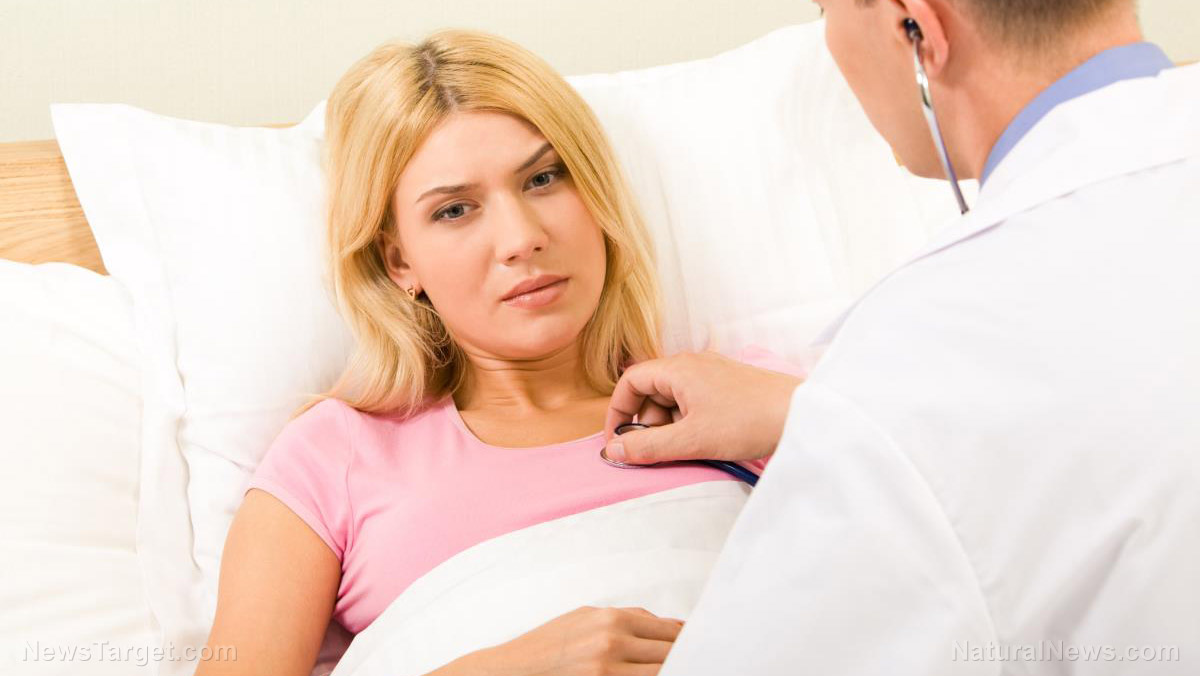Starving, thirsty, and in pain, U.K. mothers traumatized by postnatal “care”
11/02/2017 / By Frances Bloomfield

To say that the state of postnatal care in the U.K. is inadequate is an understatement. “Dismal” might be a more apt descriptor, as it perfectly encapsulates the treatment numerous mothers have receive. What was supposed to be a period of recuperation for these women turned into experiences so horrific that some mothers have been put off giving birth in its entirety. As Lauren Woodley told the DailyMail.co.uk: “I’m a mum-of-three and had wanted four — but after my experience on that ward there’s no way I’m putting myself through that again.”
Woodley’s “experience on that ward” is something that would make almost any mother cringe. Before her son came into this world via emergency Cesarean, Woodley went through four days of labor. This left her in unimaginable pain that was supposed to be mitigated by drugs — drugs that she was supposed to receive three hours after she gave birth. Three hours became seven, and by then Woodley and all other occupants of the postnatal ward were screaming for the nurses. Twelve hours passed before the trolley containing pain relief drugs finally rolled around.
Milli Gee was another mother traumatized by postnatal “care.” Though instead of being starved of pain relief, Gee was starved of actual food and water. Nearly a day after she had given birth to her twin daughters, all Gee had to eat were the toffees her mother brought her. Alone, thirsty, hungry, and curtained off from the rest of the ward, Gee had had enough and left the hospital earlier than intended. Of her ordeal, Gee had this to say: “I never put in a complaint. I wanted to get on with my life. All I know is that I felt forgotten about, at a time when just a little care and compassion would have gone a long way.” (Related: Thousands are dying under government-run healthcare in the U.K.)
Mother Nature's micronutrient secret: Organic Broccoli Sprout Capsules now available, delivering 280mg of high-density nutrition, including the extraordinary "sulforaphane" and "glucosinolate" nutrients found only in cruciferous healing foods. Every lot laboratory tested. See availability here.
What Gee and Woodley endured is terrible, yes. As it turns, out, however, this questionable brand of postnatal care is nothing new. Marina Hyde, a writer for TheGuardian.com, wrote an article in 2014 that detailed what she went through in the births of all three of her children: loneliness, a lack of proper attention from the medical staff, and sleeplessness.
“As someone who has given birth three times in the space of three and a half years, each time becoming more able to look around me in the postnatal ward and see it unfolding for others, I wish it weren’t remotely political to say that the experience is very often pretty awful at what, for many women, is absolutely the most vulnerable time in their lives,” stated Hyde.
After the birth of her third child, Hyde chose to leave as soon as she could. She wrote that she had no desire to “linger in the hospital,” because who would want to, really? “No one can wait to get out of there these days, can they?” Hyde mused.
Meanwhile, the BBC.com reported that new mothers were “let down” by postnatal care in hospitals. Those who went to birth centers or opted for home births had a more positive experience compared to other mothers. Of 1,260 women, only 56 percent said that they received the physical care that they required. This report was made in 2010.
Apparently, little has changed since then.
Go to WomensHealth.news for other stories like this one.
Sources include:
Tagged Under: hospital care, NHS, poor healthcare, postnatal care, UK, women's health




















